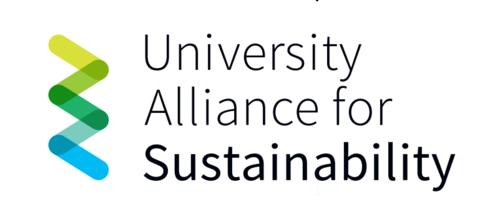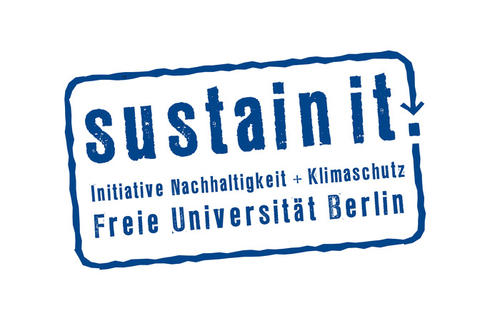Around the Tea Kitchen
The tea kitchen offers opportunities to reduce one's ecological footprint. The university provides guidance and tips on how sustainable practices can be implemented in the tea kitchen.
-
Drinking tap water contributes to a more sustainable lifestyle since it comes from the local region and doesn't need to travel long distances. Tap water is an ideal thirst quencher and is of very high quality throughout Germany.
-
For many people, coffee and tea are a must. The choice here should be sustainable products, which are not only fairly produced but also more environmentally friendly.
-
Products with the Fairtrade label sustainably improve the living and working conditions of disadvantaged producer families in Africa, Asia, and Latin America.
-
The Rainforest Alliance seal indicates that producers are trained in more sustainable cultivation practices, leading to higher yields, increased income, and better environmental protection.
Having lunch in the cafeteria today? The cafeteria labels not only provide information about the health aspect of a meal but also its carbon footprint. Vegan and vegetarian dishes are specifically marked. Opting for a meatless alternative eliminates some production and transportation steps, resulting in less energy and water consumption and lower CO₂ emissions.
-
-
When the amount of water in the kettle is measured with a cup or pot, not only does the water boil faster, but electricity is also saved.
-
A descaled kettle is slower and consumes more energy. You can easily descale it with vinegar:
- Mix vinegar and water in a ratio of 1:3.
- Pour it into the kettle and heat it.
- Let it sit for 30 minutes.
- Rinse thoroughly with clear water.
- Use the sparkling clean device with joy.
-
When the dishwasher is operated correctly, it is more environmentally friendly than normal handwashing. Make sure that:
- The dishwasher has a high energy efficiency class.
- The dishwasher is only turned on when fully loaded.
- The Eco or energy-saving program is used.
- The dishes are not pre-rinsed.
- The filter is regularly cleaned.
- Plant-based dishwasher tabs are used.
- The dishwasher is not in standby mode.
-
There are environmentally friendly alternatives to disposable sponges and cloths. Brushes or reusable fabric cloths are suitable choices.
Vinegar is a natural cleaning product and versatile in the tea kitchen. With vinegar, you can clean almost anything, as it effortlessly removes dirt, grease, and lime. Additionally, it has disinfectant properties. You can quickly make a vinegar cleaner for the tea kitchen:
- 250 ml clear vinegar
- 150 ml water
- 5 drops of essential lemon oil
- 5 drops of essential grapefruit oil
- 1 spray bottle
Did you know...?
-
According to the Consumer Center, imported mineral water has a climate impact 600 times higher than tap water.
-
You can use the CO2-calculator from "Klimatarier" to find out how much CO2 a meal causes. It calculates the climate impact of each dish. For illustration, the climate calculator determines how many CO2 equivalents the meal corresponds to in terms of driven car kilometers.




